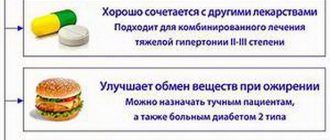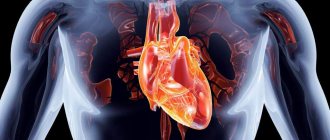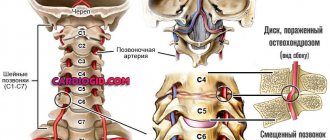- Outpatient department
Outpatient department » - Gastroenterology
Gastroenterology »
- About the direction
About the direction »
- Gastritis: symptoms, diagnosis and treatment
Gastritis is perhaps the most common disease of the gastrointestinal tract. Almost every second resident of our country suffers from it. That is why it is so important to know the first signs and symptoms of this disease in order to start treatment on time and not neglect your health.
Gastritis (from the Latin gastritis, from the ancient Greek γαστήρ (gaster) - “stomach” + -itis inflammatory or inflammatory-dystrophic changes in the mucous membrane) is a collective concept that is used to refer to various inflammatory and dystrophic changes in the gastric mucosa. Damage to the mucous membrane can be primary, considered as an independent disease, caused by poor nutrition, and secondary, caused by other infectious and non-infectious diseases or intoxication.
Types of gastritis
Acute gastritis
In modern medicine, there are several types of acute gastritis:
Simple (catarrhal) gastritis develops as a result of ingestion of stale food contaminated with pathogenic microbes (foodborne toxic infection), rotavirosis, allergies, or as a result of damage to the gastric mucosa by medications. With catarrhal gastritis, the surface layer of the mucous membrane is destroyed, which is quickly restored after the cessation of the irritating factor.
Corrosive (erosive) gastritis. This type of gastritis develops after concentrated acids or alkalis enter the stomach, which corrode the gastric mucosa. In this case, not only the superficial, but also the deep layers of the gastric mucosa are destroyed, so this form of the disease often gives rise to peptic ulcers or the formation of scars.
Phlegmonous gastritis is a purulent inflammation of the stomach that can develop as a result of penetration of a foreign object (for example, a fish bone) into the stomach wall with subsequent infection of this area. A distinctive feature of this type of gastritis is high fever and unbearable pain in the epigastric region. Phlegmonous gastritis requires immediate surgical intervention, as it can develop into peritonitis (extensive inflammation of the abdominal organs) and be fatal.
Fibrinous gastritis. It occurs very rarely against the background of sepsis (blood poisoning).
With proper treatment, acute gastritis (depending on the form) lasts up to 5 - 7 days, but complete recovery of the stomach occurs much later.
Often acute gastritis can become chronic.
Chronic gastritis
Chronic gastritis can develop as a consequence of acute gastritis or as an independent disease. Its danger lies in the fact that it can occur for a long time without showing any symptoms.
In the development of the disease, as a rule, there are periods of exacerbation and remission. During periods of exacerbation of chronic gastritis, short-term attacks of pain, discomfort in the upper abdomen, a feeling of heaviness, nausea after eating, and heartburn may appear, which indicates a dysfunction of the natural “valves” of the stomach and the reflux of acidic stomach contents into the esophagus.
A characteristic feature of chronic gastritis is the gradual growth of connective tissue in the gastric mucosa, replacing the cells that produce gastric juice (atrophy of the gastric mucosa). Chronic gastritis is often accompanied by a decrease in the production of gastric juice and acid (hypoacid gastritis).
Helicobacter pylori infection, which parasitizes the stomach, disrupts the renewal processes of the mucous membrane; thus, when old cells die, new ones cannot be formed. This leads to gradual degradation of the gastric mucosa with loss of function of the glands that produce gastric juice.
The relationship between diarrhea and blood pressure
Despite their widespread prevalence, diarrhea and blood pressure are not directly caused by each other.
These are just individual symptoms, not directly related pathogenetically. They are only concomitant manifestations of the same or different diseases, both organic and functional or psychogenic in nature. Therefore, there is no general advice for treating this condition. In each individual case, the decision should be made by an experienced doctor; only this can give a positive effect and complete recovery.
Causes of gastritis
The main causes of gastritis are:
- poor nutrition;
- hasty eating and poorly chewed food or dry food;
- eating food that is too hot or too cold;
- eating savory foods (mostly spicy and highly salted);
- smoking;
- alcohol consumption;
- stress;
- infection with the microbe Helicobacter pylori;
- chewing gum on an empty stomach.
Causes of diarrhea
The most common causes of diarrhea include:
- bacterial infections (Escherichia coli, Shigella, Salmonella, Campylobacter, spread through contaminated food or water);
- viral infections (adenovirus, norovirus, rotavirus, coronavirus);
- parasitic infections (giardia, histolytic amoeba, cryptosporidium);
- inflammatory and functional bowel diseases (irritable bowel syndrome, Crohn's disease, ulcerative colitis, bacterial overgrowth syndrome);
- food allergies, food intolerance (lactose, fructose intolerance, celiac disease);
- diabetes mellitus (severe form, difficult to control);
- side effect of taking medications (antibacterial and some anticancer drugs, antacids containing magnesium);
- consumption of low-quality, incompatible products, fatty and spicy foods, alcohol;
- surgical intervention (surgery on the stomach, intestines, gall bladder);
- intestinal ischemia;
- malignant neoplasms (pancreatic cancer, colon cancer);
- radiation therapy.
The most common cause of acute diarrhea in children is rotavirus infection.
Diarrhea in infants is most often associated with a viral infection (no treatment required), bacterial or parasitic infection. Diarrhea in young children can also be caused by changes in the diet of the child or mother (during breastfeeding), or the use of antibiotics by the child or mother (during breastfeeding).
Symptoms of gastritis
So, how can you recognize that you have begun to develop gastritis? It is worth listening to your body and analyzing why pain bothers you, at what time it occurs and how often it happens.
Symptoms of gastritis:
- abdominal pain: sharp paroxysmal or constant painful;
- nausea is constant or intermittent, often occurring immediately after eating;
- heartburn;
- belching with a sour smell;
- repeated vomiting (in the case of acute gastritis, vomiting with blood is possible, since internal bleeding may open in the stomach);
- increased salivation;
- sometimes dry mouth;
- bowel dysfunction: constipation or diarrhea;
- from the whole body: severe general weakness, dizziness, headache, sweating, increased temperature, decreased blood pressure, increased heart rate - tachycardia;
- decreased appetite;
- unpleasant taste in the mouth;
- feeling of heaviness in the stomach after eating;
- bloating, rumbling in the stomach, flatulence;
- anemia, brittle and dry hair, split nails.
Diarrhea
Vomit
Gastritis
Pancreatitis
Jaundice
Diabetes
27176 07 June
IMPORTANT!
The information in this section cannot be used for self-diagnosis and self-treatment.
In case of pain or other exacerbation of the disease, diagnostic tests should be prescribed only by the attending physician. To make a diagnosis and properly prescribe treatment, you should contact your doctor. Diarrhea: causes of occurrence, what diseases it occurs with, diagnosis and treatment methods.
Definition
Diarrhea is defined as loose or loose stools three or more times a day, producing more than 200 ml of liquid stool. However, frequent stools are not considered diarrhea. Unformed, loose stools in newborns and breastfed children are also normal.
Diarrhea, or diarrhea, occurs due to impaired absorption of water in the intestines. Significant loss of fluid can lead to dehydration, and the removal of large amounts of electrolytes (potassium, sodium, chlorine ions) can disrupt the normal course of intra- and intercellular processes. According to the World Health Organization, acute diarrhea causes more than 2 million deaths per year.
Types of diarrhea
According to the clinical course:
- acute diarrhea - lasts up to 4 weeks, caused by bacterial, parasitic or viral infectious diseases of the intestine;
- chronic diarrhea - lasts more than 4 weeks, and its cause is pathological conditions of the gastrointestinal tract.
Separately, there is “travelers' diarrhea” - a clinical syndrome that develops in people traveling to other countries and climatic zones.
It usually lasts no more than 7 days. By pathogenesis:
- secretory diarrhea (profuse watery stool more than 1 l/day);
- osmolar diarrhea (copious stool (polyfecal matter) with a large amount of semi-digested food residue (steatorrhea));
- hyper- and hypokinetic diarrhea (liquid or mushy stool);
- exudative diarrhea (loose, loose stools with mucus and/or blood).
Possible causes of diarrhea
Diarrhea can be caused by food poisoning, eating stale or incompatible foods, alcohol, too much coffee, too fatty or spicy foods.
Diarrhea is usually a symptom of an infection in the gastrointestinal tract, which can be caused by a variety of bacteria, viruses and parasites. The infection spreads through contaminated food, drinking water or from person to person as a result of poor hygiene. The patient experiences symptoms of intoxication: fever, chills, body aches, general malaise, lack of appetite, nausea, vomiting. High fever is more characteristic of invasive infections that cause an inflammatory response. With severe inflammation in the intestines, erosions and ulcers develop and, as a result, bloody diarrhea.
In addition, diarrhea can be caused by various diseases and pathological conditions:
- lack of pancreatic enzymes, chronic pancreatitis;
- neoplasms of the pancreas, adrenal glands or intestines;
- ischemia of the small and large intestine;
- irritable bowel syndrome;
- intestinal dysbiosis;
- resection of the stomach or intestine with the formation of a blind loop or short small intestine;
- congenital disorders of the absorption process;
- obstructive jaundice of any nature;
- diseases of the thyroid gland (hyperthyroidism, thyrotoxicosis);
- diabetes;
- radiation exposure;
- taking certain medications (laxatives, antibiotics, antacids, etc.);
- neurogenic disorders.
Diarrhea is often included in the symptom complex of the following syndromes:
- syndromes of acute gastritis and rhitis are characteristic of salmonellosis, bacterial food poisoning, intestinal yersiniosis (pseudotuberculosis);
- acute enteritis syndrome is typical for cholera, viral diarrhea, coli infection caused by Escherichia coli, intestinal yersiniosis;
- acute colitis syndrome develops with dysentery, coli infection, amebiasis (amebic dysentery);
- acute rocolitis syndrome is characteristic of salmonellosis, intestinal yersiniosis, campylobacteriosis;
- profuse diarrhea with a significant admixture of blood may indicate the onset of the development of ulcerative colitis, Crohn's disease;
- acute infectious diseases of viral etiology (rotavirus, norovirus, adenovirus, coronavirus) occur with symptoms of intoxication and primary damage to several parts of the gastrointestinal tract (stomach, small and large intestine) and with the development of enterocolitis and rocolitis syndromes.
Involvement of the stomach and small intestine in the pathological process may be accompanied by severe dehydration and electrolyte disturbances due to fluid loss.
During diarrhea, water and electrolytes (sodium, chlorine, potassium and bicarbonate) are eliminated from the body through loose stools, vomit, sweat and urine. Chronic diarrhea often causes vitamin and mineral deficiencies, which can lead to the development of anemia. Diarrhea in a child is especially dangerous, as it is fraught with very rapid development of dehydration, tachycardia, drop in blood pressure and shock.
Which doctors should you contact if you have diarrhea
? If you have diarrhea, you should contact your general practitioner or. The doctor will prescribe the necessary examination and determine the cause of the disease. Often, consultation with an infectious disease specialist is required to make a correct diagnosis.
Diagnostics and examinations for diarrhea
The diagnostic algorithm for acute diarrhea involves determining its cause, identifying an inflammatory or other etiological factor, and verifying the disease.
Diagnostic difficulties rarely arise only when diarrhea becomes the first manifestation of a systemic disease or dominates the clinical picture.
Along with a physical examination (measuring weight, temperature, heart rate and blood pressure), a proctological examination is performed.
The nature of the stool is determined by the location of the intestinal lesion (small or large intestine). Depending on the color and consistency of the stool, the cause of diarrhea can be assumed:
- Yellow diarrhea - occurs as a result of increased intestinal peristalsis (stool moves quickly and is not fully formed), may be accompanied by pain and heaviness in the abdomen.
- Liquid green stool is recorded in viral and bacterial infectious diseases. The color of stool is explained by the active increase in the number of pathogens and the accumulation of leukocytes. May be accompanied by frequent vomiting and abdominal pain.
- Diarrhea with blood occurs due to gastrointestinal bleeding. If the upper parts of the digestive system are affected, the stool turns black. Stool with scarlet blood indicates bleeding from the rectum.
- White, loose stools occur when there are tumors or stones in the body that compress the bile duct. This condition is also accompanied by darkening of the urine and yellowing of the skin.
- Water diarrhea occurs in cholera. In this case, bowel movements are very frequent, and there is a high risk of rapid dehydration.
Laboratory examination methods:
- ;
- ;
- general urine analysis;
Diagnosis of gastritis
Today, the main way to determine gastritis is fibrogastroduodenoendoscopy or FGDS, which consists of studying the condition of the inner surface of the stomach using a probe, as well as a biopsy - removing a small fragment of tissue for examination.
FGDS makes it possible not to confuse gastritis and ulcer and to determine the type of disease: erosive or non-erosive.
Also, a gastroenterologist, to make a correct diagnosis, may prescribe the following tests:
- General blood analysis.
- Fecal occult blood test.
- Histological examination of a biopsy specimen of the gastric mucosa.
- Cytological examination of a biopsy specimen of the gastric mucosa.
- Two tests for the determination of H. pylori.
- Blood chemistry.
- General urine analysis.
Diarrhea and low blood pressure: the cause of the condition
A sick stomach or intestines, infectious diseases of the gastrointestinal tract can cause diarrhea, vomiting or hypersalivation (increased salivation). These conditions lead to rapid and massive loss of fluid by the body. The situation naturally leads to a decrease in circulating blood volume, hypovolemia and, consequently, to a decrease in blood pressure. Drinking plenty of fluids can provide significant relief in such cases.
As in the previous case, diarrhea and low blood pressure are often combined with vegetative-vascular dystonia, but only with its hypotonic variant. Loss of strength, anxiety, and loss of appetite will also accompany this syndrome. The reason is still the same - a violation of the nervous regulation of internal organs, which leads to a breakdown in their activity.
Often these manifestations occur during pregnancy, especially in the first trimester. This is due to a sharp hormonal change in the female body, which causes various dysfunctions. Usually this condition goes away on its own after endocrine activity normalizes.
Diet for gastritis
For gastritis with low acidity
Can:
- boiled lean meat: chicken, rabbit;
- meat broths;
- lean fish: pink salmon, hake, cod;
- vegetables in the form of puree or grated: carrots, potatoes, green peas, beets;
- ground fruits, compotes and jelly from apples, raspberries and strawberries;
- porridge (oatmeal, semolina, rice);
- low-fat cottage cheese, milk;
- only squeezed cabbage juice;
- alkaline mineral waters, for example Borjomi (1 glass an hour before meals).
It is forbidden:
- hot and spicy dishes;
- canned food;
- mustard;
- pepper;
- onion;
- hot sauces.
For gastritis with high acidity
Can:
- pureed vegetarian soups;
- dairy products;
- lean fish and boiled meat;
- scrambled eggs;
- porridge, jelly, jelly;
- vegetable purees;
- compotes from fresh (not sour) fruits;
- carrot juice;
- White bread.
It is forbidden:
- coffee and strong tea;
- meat broths;
- smoked meats;
- mustard;
- onion;
- garlic.
For all types of gastritis, split meals are very important - 5-6 times a day.
Gastritis (from the Latin gastritis, from the ancient Greek γαστήρ (gaster) - “stomach” + -itis inflammatory or inflammatory-dystrophic changes in the mucous membrane) is a collective concept used to refer to inflammatory and dystrophic changes in the gastric mucosa of different origins and course. Damage to the mucous membrane can be primary, considered as an independent disease (due to poor nutrition), and secondary, caused by other infectious and non-infectious diseases or intoxication.
Gastritis is perhaps the most common disease of the gastrointestinal tract. Almost every second resident of our country suffers from it.
If you are really looking for your doctor...
What to do if symptoms appear
As you can see, there are many factors that cause diarrhea and blood pressure problems: side effects of drugs, psychological disorders, and some diseases. It is not always possible to figure this out on your own and determine the specific source of the problem.
Therefore, if you find such signs in yourself, immediately consult a doctor to establish an accurate diagnosis and prescribe appropriate therapy. Remember that self-medication can only make you feel worse.
Causes of vomiting
In most cases, vomiting is caused by irritation of the stomach receptors or, in medical terms, has a visceral
origin. The cause is most often acute or chronic diseases of the stomach itself (acute food poisoning, gastritis, stomach ulcers, food allergies). Also, stomach receptors can react to diseases of other organs - the gallbladder, uterus, heart (vomiting is part of the complex of possible symptoms of myocardial infarction).
Vomiting may also be central
origin, that is, caused by pathologies of the central nervous system (brain), such as meningitis, encephalitis, trauma and brain tumors. Vomiting is quite common during migraines. Inner ear problems can also lead to vomiting (in this case, vomiting may occur along with dizziness). If the receptors of the inner ear are excessively irritated (with motion sickness), even a healthy person can vomit, especially if the vestibular apparatus is not trained. Sometimes vomiting is caused by emotional distress (stress) or is a reaction to something that causes extreme disgust (conditioned vomiting).
Irritation of the vomiting center can be caused by toxic substances carried by the bloodstream ( hematogenous-toxic
vomit). Toxic substances can enter the body from the outside (for example, chlorine or carbon monoxide through inhalation), or they can be produced in the body itself as a result of impaired liver or kidney function.










